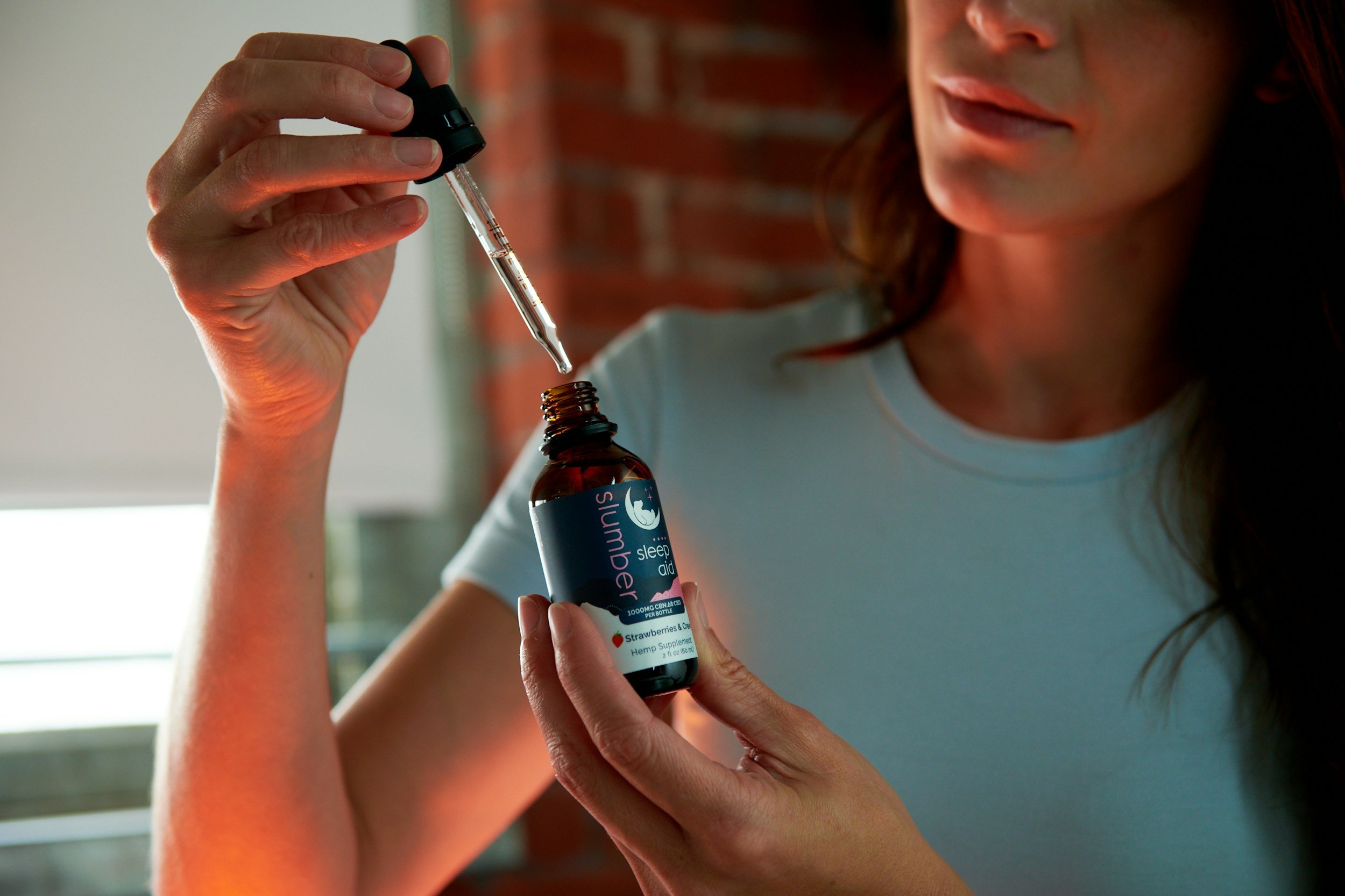The Rise of Digital Health Tracking Apps
By PAGE Editor
In the digital age, technology has transformed nearly every aspect of our lives, from how we communicate to how we manage our finances. One of the most significant changes in recent years has been the rise of digital health tracking apps, which have revolutionized the way we monitor and manage our health. Whether it's tracking physical activity, sleep patterns, nutrition, or mental well-being, health apps are empowering individuals to take a more active role in their wellness journey. These tools have not only made healthcare more accessible but have also created a new paradigm in preventive care and self-monitoring.
As health tracking apps continue to evolve, they have expanded beyond basic fitness and exercise functions to incorporate more holistic features. Some apps now integrate with wearable devices, while others provide tailored recommendations for supplements, such as Delta 8 gummies, to improve mood, sleep, and overall wellness. This integration of digital health with lifestyle products marks a new frontier in personal health management.
In this article, we will explore the rise of digital health tracking apps, the benefits they offer, and how they are shaping the future of wellness. We’ll also discuss how products like Delta 8 gummies are being integrated into these health journeys and why they’re becoming a popular choice for those looking to support their physical and mental health.
The Growth of Digital Health Tracking Apps
Over the last decade, the digital health app market has experienced exponential growth. According to industry reports, the global digital health market is expected to reach over $500 billion by 2025, fueled by the widespread adoption of smartphones, wearable technology, and the growing demand for more personalized health solutions. This surge in digital health tools is not limited to fitness enthusiasts or those with chronic conditions—more people than ever are using these apps as part of their daily routines to track everything from calories burned to stress levels and sleep cycles.
Physical Health Tracking Apps
When most people think of health tracking apps, fitness and physical health usually come to mind first. Popular apps like MyFitnessPal, Strava, and Fitbit have allowed millions of users to log their daily physical activity, track their workouts, and set fitness goals. These apps provide detailed insights into a person’s physical activity, such as calories burned, steps taken, heart rate, and even sleep quality.
Health tracking apps and functional drinks work together to help individuals take a more proactive approach to wellness. While functional drinks deliver targeted nutrients, hydration, or energy support, health tracking apps monitor metrics like calorie intake, hydration levels, and activity performance.
By tracking these metrics over time, users can adjust their habits, optimize their fitness routines, and achieve better results. For example, apps like Strava cater to runners and cyclists, providing detailed performance analytics, social features, and even challenges to motivate users. Meanwhile, Fitbit integrates with a range of smartwatches to offer heart rate monitoring, sleep tracking, and more, all in one device, making it easier to track physical health metrics at a glance.
Mental and Emotional Health Apps
Beyond physical health, digital health tracking apps are also focusing more on mental and emotional wellness. Apps like Headspace and Calm have gained widespread popularity for their guided meditation and mindfulness exercises. These apps help users reduce stress, improve focus, and enhance emotional well-being. Given the increasing awareness of mental health’s impact on overall wellness, these apps have become a crucial part of the digital health ecosystem.
Mental health apps are often used to help individuals manage anxiety, depression, and other conditions by providing coping strategies, mood tracking, and access to therapeutic techniques such as cognitive behavioral therapy (CBT). Apps like Daylio allow users to record their emotions, habits, and daily activities, offering insights into how mental and emotional states correlate with specific lifestyle choices, such as diet, exercise, or sleep.
Nutrition and Supplement Tracking Apps
Nutrition is another critical component of overall health, and apps that track food intake, offer meal planning suggestions, and analyze nutrient intake are now more sophisticated than ever. Lose It! and Noom provide calorie-tracking features while also offering nutrition advice and tips for healthy eating. Users can track their macronutrients, micronutrients, and even their water intake, helping them make better dietary choices.
These apps are also starting to integrate suggestions for supplements and wellness products that may enhance overall health. For example, some apps suggest taking natural supplements like Delta 8 gummies for those experiencing stress or sleep disruptions. Delta 8 is a cannabinoid derived from hemp that has a mild psychoactive effect and is known for its calming properties, making it a popular product for promoting relaxation and mental clarity. As more users look for natural alternatives to pharmaceuticals, apps that recommend CBD or Delta 8 products provide a holistic approach to wellness that extends beyond exercise and diet.
The Benefits of Digital Health Tracking Apps
The rise of digital health apps offers several benefits that contribute to a healthier and more informed lifestyle. Here are some of the key advantages:
Personalized Health Monitoring
One of the primary benefits of using a health tracking app is the ability to personalize your health journey. Rather than relying on general advice, users can receive tailored recommendations based on their specific data. For example, a fitness app like Apple Health can integrate with various fitness devices, wearable trackers, and other apps to offer insights into everything from exercise routines to sleep patterns. Similarly, mental health apps can adjust based on individual user input, offering personalized meditation exercises, breathing techniques, or journaling prompts based on real-time mood tracking.
Motivation and Accountability
Health tracking apps provide users with the tools to set goals, track progress, and celebrate milestones, all of which can enhance motivation and accountability. The act of seeing progress in a tangible form, such as the number of days you've gone without consuming cannabis or the number of miles you've run, can provide a sense of achievement and encourage continued efforts. Many apps also provide reminders or notifications to help users stay on track with their goals, whether it's logging a meal or doing a daily workout.
Early Detection and Preventive Care
Digital health apps are excellent tools for early detection and preventive care. Many apps monitor key metrics such as blood pressure, heart rate, and sleep quality, which can provide early indicators of potential health issues. For instance, an app like Sleep Cycle can track the quality of your sleep and detect irregularities that may point to underlying health problems like sleep apnea. By catching these issues early, individuals can take proactive steps to seek medical care or adjust their lifestyle habits to avoid more serious health complications in the future.
Convenience and Accessibility
The convenience of having all your health data in one place on your smartphone cannot be overstated. Whether you're tracking exercise, sleep, or stress, digital health apps allow users to access their health data anywhere and at any time. This level of accessibility ensures that users can stay on top of their wellness goals, even while traveling or managing a busy lifestyle.
Integrating Delta 8 Gummies with Health Tracking Apps
As the wellness industry continues to grow, more individuals are turning to alternative methods to support their mental and physical health. Delta 8 gummies are one such option that has garnered attention for their calming properties. Delta 8 is a cannabinoid found in hemp and cannabis that has a less potent psychoactive effect than Delta 9 THC, making it a milder and more manageable option for those seeking relaxation, stress relief, or improved sleep without feeling overly intoxicated.
Many digital health apps now incorporate or recommend wellness products like Delta 8 gummies as part of a holistic approach to health. Apps focusing on stress management or sleep tracking may suggest Delta 8 gummies as a natural alternative to promote calmness before bed or ease anxiety throughout the day. By combining these products with the insights offered by health tracking apps, users can take a more tailored and informed approach to their wellness.
For example, users of Sleep Cycle or Calm might track their sleep patterns and discover that they’re not getting restful sleep. Based on the data, the app could suggest trying Delta 8 gummies to improve relaxation before bedtime. These gummies, known for their ability to promote a sense of calm and relaxation, can complement other wellness strategies tracked in the app, such as reducing caffeine intake or adopting a consistent sleep schedule.
The Future of Digital Health Tracking
As digital health tracking apps continue to evolve, their integration with lifestyle products like Delta 8 gummies and other supplements will likely become more common. The future of digital health apps is not just about monitoring physical activity or calories but embracing a comprehensive view of wellness, encompassing mental health, sleep, nutrition, and stress management. These apps will continue to empower users with personalized data, helping them make informed decisions about their health and wellness.
Whether you're trying to improve your fitness, manage stress, track your sleep, or find the best wellness products, digital health apps offer a powerful and convenient way to take control of your health journey. The combination of technology, personalized insights, and holistic wellness products like Delta 8 gummies marks a new era of self-care, one where individuals have all the tools they need to thrive in a busy, modern world.
HOW DO YOU FEEL ABOUT FASHION?
COMMENT OR TAKE OUR PAGE READER SURVEY
Featured









Water management plays an essential role in maintaining the safety and stability of a home.